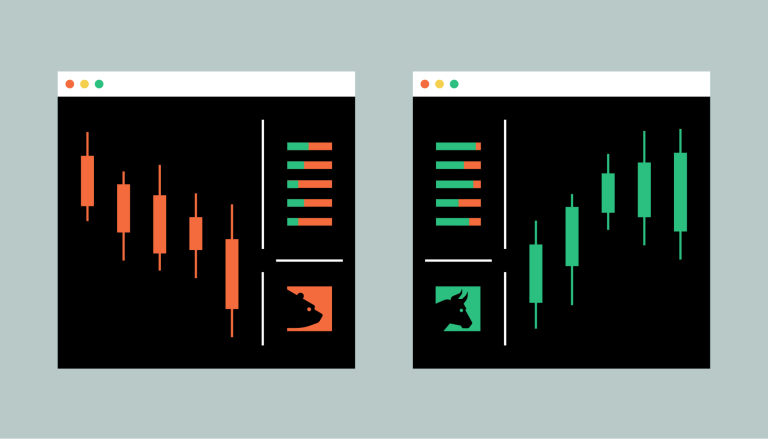Trading Crypto Futures in a Bear Market
What you need to know about trading futures contracts in a downward, or bear, market.

A downward market, also known as a bear market, is characterized by declining asset prices and widespread market pessimism. While it can be challenging for spot traders to make a profit in such an environment, trading derivatives, such as futures contracts, offers benefits that traditional spot trading alone can’t provide.
Trading futures contracts in a bear market can provide you with opportunities to profit from declining asset prices, increased diversification of your portfolio, and provide valuable market insight. However, it's essential to carefully approach this type of trading and have a solid understanding of the markets and risk management strategies since trading derivatives like futures can carry risk.
Price Shorting
Futures contracts allow you to take short positions, meaning you can profit from price declines. This is particularly useful in a bear market where prices are generally moving in a downward direction. When you “short sell” a futures contract, you sell it and hope to buy it back at a lower price in the future. Unlike spot, no borrowing is necessary.
For example, if you believe the price of Bitcoin is going to decrease, you can sell Bitcoin futures. If the price of Bitcoin indeed decreases, you can then buy back the contracts at the lower price and realize a profit. If the price rises you may incur a loss.
Diversification
By trading futures contracts, you can gain exposure to a wide range of assets, including commodities, foreign currencies, stock indices, and crypto. And because futures are a derivative, you can add exposure to additional assets without needing to own the underlying asset. Increasing the range of assets held in a portfolio is known as diversification.
Diversification is a powerful tool for any trader or investor because it reduces the exposure that any one particular asset can have on your overall portfolio, helping to reduce volatility over time.
There are a lot of ways to diversify a portfolio. Derivatives, including futures, can offer unique diversification strategies. For example, you could open a short futures position for assets that have historically moved in the opposite direction of other assets that you hold in your portfolio.
Market Insight
Trading futures contracts can provide valuable insights into market sentiment and trends. By studying futures prices and trading volumes, you may gain a better understanding of where the market is headed and make more informed investment decisions.
Let’s use backwardation as an example. Backwardation is when the current price of an asset is higher than the prices trading in futures markets. If the price for Ethereum futures contracts is not only lower than the spot price of Ethereum, but gets lower and lower with each successive contract maturity date, this may indicate a bearish market trend for Ethereum. As a trader looking to capitalize on this market insight, you could manage both your spot holdings and future contract positions accordingly.
Disclaimer: Trading in futures involves substantial risks. You should only trade in financial products that you are familiar with and understand the associated risks, and after carefully considering whether such trading is suitable in light of your investment experience, financial position, and investment objectives.
Leverage in futures trading can work for you or against you. The risk of loss using leverage can exceed your initial investment amount.
Futures products and services on Coinbase Advanced are offered by Coinbase Financial Markets, a member of NFA and is subject to NFA’s regulatory oversight and examinations. However, you should be aware that NFA does not have regulatory oversight authority over underlying or spot virtual currency products or transactions or virtual currency exchanges, custodians or markets.


